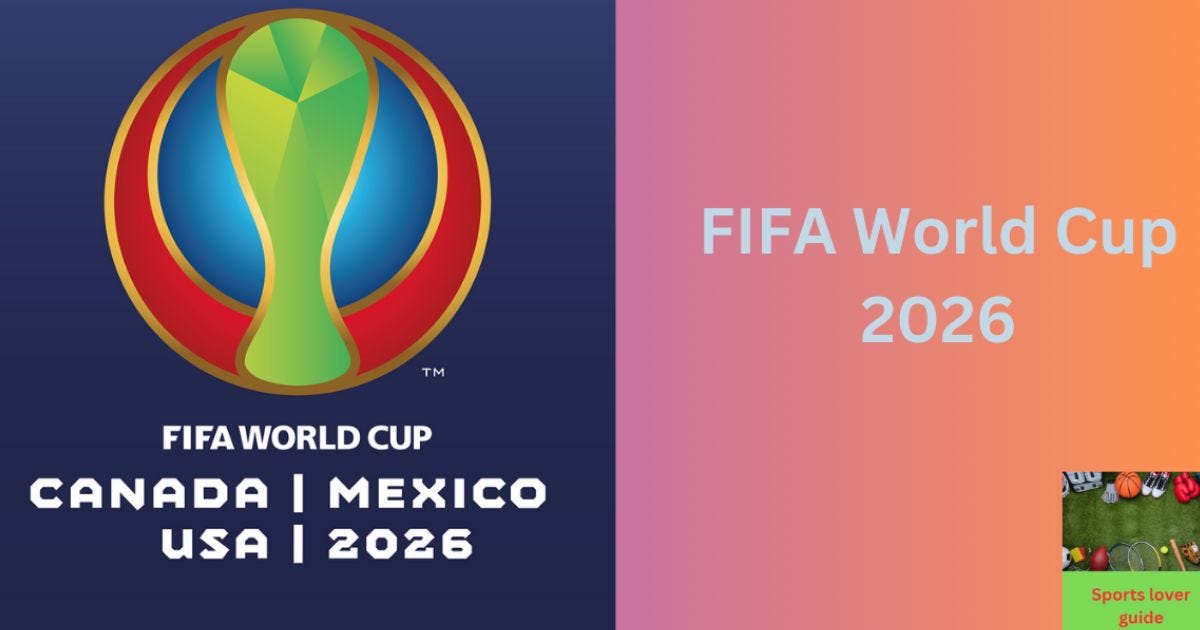The FIFA World Cup is the most esteemed tournament in international soccer, attracting top talent from around the globe. With the 2026 edition on the horizon, aspiring nations are gearing up to meet FIFA’s qualification requirements. The road to qualification for the FIFA World Cup 2026 is fraught with challenges and excitement as teams battle it out on the field to secure their spot in the prestigious tournament.
FIFA has recently unveiled the stringent criteria that teams must meet to qualify for the 2026 World Cup, intensifying the competition and raising the stakes for all participating nations. As fans eagerly anticipate the qualifying matches that will unfold in the coming years, the journey towards securing a coveted spot in the 2026 FIFA World Cup promises to be filled with drama, passion, and unparalleled sporting action.
TORONTO TURN UP. Bring your game to the beautiful game, and show up with #WeAre26 ⚽@fbernardeschi | @soccercanada @FIFAWorldCup @cityoftoronto @MLSEPR pic.twitter.com/kjInjQb5GF
— FIFA World Cup 26 Toronto (@FWC26Toronto) May 24, 2023
Understanding the FIFA World Cup
The FIFA World Cup is the most prestigious international football tournament held every four years. National teams from around the world compete for the coveted trophy in a month-long event that captivates football fans globally.
History of the FIFA World Cup
The first FIFA World Cup took place in Uruguay in 1930, with only 13 teams participating. Since then, the tournament has grown in scale and popularity, becoming a pinnacle of sports excellence.
The qualification for FIFA World Cup 2026 has new requirements to ensure fair play and inclusivity among all participating nations.
Qualification Process
The road to FIFA World Cup 2026 involves a rigorous qualification process for national teams spanning various continents. Each region has its qualification tournaments to compete for a limited number of spots in the final game.
- European Qualification: Teams in Europe compete in a series of group stages and playoffs to secure their place in the World Cup.
- African Qualification: African nations battle it out in their qualification rounds to earn a ticket to the prestigious event.
- South American Qualification: To secure their spot in the World Cup, South American teams face tough competition in a round-robin format.

Previous Qualification Criteria
As we look forward to the upcoming FIFA World Cup 2026, it’s essential to understand the previous qualification criteria that teams had to meet to secure their spot in the prestigious tournament. The qualification for FIFA World Cup 2026 is highly competitive, demanding teams to showcase their skills and determination to make it to the final stage.
Regional Qualification Tournaments
In the past, one key aspect of the qualification process has been the regional qualification tournaments. Teams from different regions around the world compete against each other in rigorous matches to earn their place in the World Cup. Each region follows its unique qualification process, adding an element of diversity to the tournament.
Regional tournaments are expected to be even more intense for the FIFA World Cup 2026, with teams putting in their best performances to secure a spot in the final event.
Points Allocation System
Another crucial aspect of the previous qualification criteria is the points allocation system. Teams earn points based on their performance in specific matches during the qualification period. The points accumulated play a significant role in determining which teams qualify for the ultimate tournament.
The FIFA World Cup 2026 will also use a points allocation system, which will ensure fairness and transparency in the qualification process.

Changes and Updates for FIFA World Cup 2026
As the journey to the FIFA World Cup 2026 intensifies, notable changes and updates have been announced to enhance the qualification process for the highly anticipated event. National teams worldwide are gearing up to meet the new requirements and standards set by FIFA to secure a spot in the prestigious tournament.
Revised Qualification Criteria
One of the significant updates for the FIFA World Cup 2026 is the revised qualification criteria, placing a stronger emphasis on performance in regional competitions. Teams will need to showcase their prowess in regional qualifiers to earn a chance to compete on the global stage.
Increased Slot Allocations
In a bid to promote inclusivity and diversity, FIFA has increased the slot allocations for certain regions, providing more opportunities for teams from underrepresented areas to participate in the World Cup. This change aims to create a more balanced and competitive tournament.
Criteria for Qualification
Qualifying for the FIFA World Cup 2026 is a rigorous process involving various criteria that teams must meet to secure their spot in the prestigious tournament. The qualification process ensures that only the best teams from each region around the world compete in this global event.
Performance in Regional Qualifying Events
Teams must perform well in their respective regional qualifying events to earn a place in the FIFA World Cup 2026. Each region has a specific allocation of slots, and teams compete against each other to secure these coveted spots.
Teams that consistently demonstrate their skill and competitiveness in these qualifiers stand a better chance of making it to the final tournament.
Consistent FIFA Rankings
Another crucial criterion for qualification is maintaining a good standing in the FIFA Rankings. Teams need to showcase their strength and abilities in international matches to climb up the rankings and increase their chances of qualification.
Consistent performance and positive results against top-ranked teams can significantly impact a team’s position in the FIFA Rankings, ultimately influencing their qualification prospects.

Key Requirements Unveiled
As we embark on the Road to Qualification for the FIFA World Cup 2026, it is essential to understand the key requirements that teams need to meet to secure a spot in the prestigious tournament. FIFA has laid out specific guidelines and criteria that participating teams must adhere to in order to qualify for the World Cup.
Performance in Qualifying Matches
One primary requirement for qualification for the FIFA World Cup 2026 is a strong performance in the qualifying matches. Teams need to compete fiercely against other national teams in their respective confederations to earn enough points to secure a spot in the tournament. Consistency and determination are key in these crucial matches.
Continual Assessment by FIFA
FIFA continuously assesses the participating teams to ensure compliance with regulations and fair play. Teams must maintain discipline, sportsmanship, and integrity throughout the qualification process. Fair play is a core value that FIFA upholds in all its events.
Frequently Asked Questions
-
- What are the qualification requirements for the FIFA World Cup 2026?
- FIFA determines the qualification requirements for the FIFA World Cup 2026 through a series of qualification matches involving national teams from around the world.
-
- How many teams will participate in the FIFA World Cup 2026?
- The FIFA World Cup 2026 will feature an expanded field of 48 teams, up from the current 32 teams.
-
- When will the FIFA World Cup 2026 take place?
- The FIFA World Cup 2026 is scheduled to take place in June and July of 2026.
-
- Which countries will host the FIFA World Cup 2026?
- Canada, Mexico, and the United States will co-host the FIFA World Cup 2026, making it the first World Cup to be hosted by three countries.
-
- What are the benefits of hosting the FIFA World Cup 2026?
- Hosting the FIFA World Cup 2026 can bring significant economic benefits to the host countries, including increased tourism, infrastructure development, and global exposure.
Final Thoughts: Decoding the Qualification Process for FIFA World Cup 2026
As we conclude our exploration of the qualification process for the FIFA World Cup 2026, it is evident that the road to securing a spot in this prestigious tournament is not an easy one. National teams must navigate through rigorous qualifiers and meet the specified requirements to earn their ticket to compete on the world stage.
The unveiled requirements emphasize the importance of skill, determination, and strategy in the journey towards qualification. Teams must showcase their prowess, commitment, and teamwork to earn a coveted spot in the tournament.
In summary, the qualification process for the FIFA World Cup 2026 is a challenging yet rewarding endeavor that tests the abilities and resilience of national teams worldwide. It is a journey filled with passion, dedication, and the pursuit of excellence in the realm of football.

